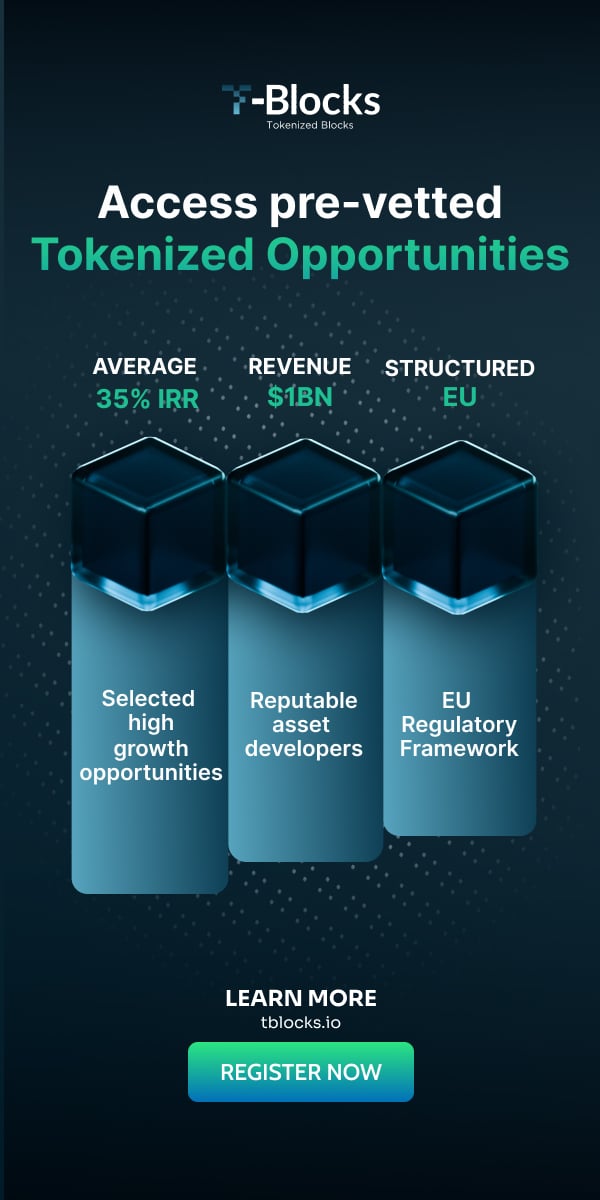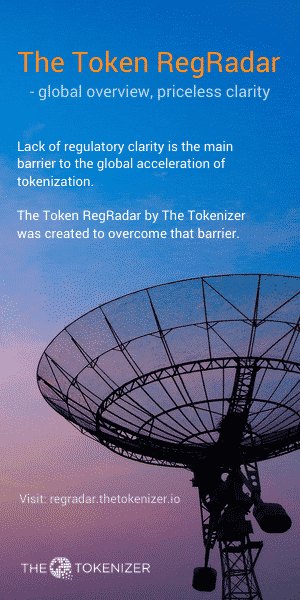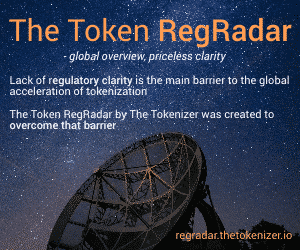“BBVA’s goal is to provide our customers with access to new digital asset markets”
Alicia Pertusa, head of Client Solutions Strategy at BBVA, has been involved in the different ‘blockchain’ research projects and pilots that BBVA has carried out over the past five years. The launch of its first bitcoin transaction and custody service in Switzerland in December 2020 was a landmark achievement for BBVA. The rollout was made possible thanks to the regulatory framework set up by the Helvetian country, which provides a unique opportunity to explore innovation in digital asset management. In this interview, Pertusa explains how this service is just a first step in an area that is going to have a direct impact on how we exchange not only money, but also any valuable asset or piece of information.
________________
Q: BBVA recently completed the successful launch of its first bitcoin trading service, in Switzerland, but it has been exploring blockchain technology for years. Why has it taken so long?
A: Indeed, BBVA’s been working in the field of ‘blockchain’ for the past five years. This is because it is a path that takes time to build, because it is a technology that requires a series of new, different capabilities. We had to develop in-house profiles in a complex technology with many implications, not only from a technical, but also from a legal, risk and compliance standpoint.
Secondly, there have also been regulatory reasons, since, although this space is becoming increasingly regulated, there is still a lot of work pending in that direction, and for us it is essential to work within a regulated framework. And finally, we also had to wait for the technology to reach an adequate level of maturity to offer standard financial industry services, in all areas.
In these years we have piloted a number of solutions in the field of payments, process improvement, issuance of financing products, and now we are taking one more step in cryptocurrency management.
The tokenisation of assets via blockchain could facilitate new financing pathways, guarantee secure investments and programme digital money so that it can only be used for certain purposes, although the associated regulations have not yet materialised.
Q: What is this service actually about?
A: BBVA’s private banking clients in Switzerland will be able to get, from a single application, a unified view of all their positions in savings and investment products: Investment funds, stocks, bonds, deposits and also crypto assets.
It is a service with the same guarantees as any other financial service, which runs on a safe, transparent and user-friendly system from which customers can access the purchase and sale, custody and portfolio transfer features. We launched operations with bitcoin, because it’s currently the most popular cryptocurrency, but BBVA’s goal is to expand its service portfolio and provide customers with access to new digital asset markets.
Q: You say that you have detected a growing demand in the market for cryptocurrency-related services. Why is that? What type of users are demanding these services?
A: There are several reasons. On the one hand, a greater level of regulatory standardization on a global scale. On the other hand, the greater technological maturity of service providers in connection with crypto-assets.
From our experience, the profiles expressing interest are primarily private or institutional banking clients aiming to diversify their portfolios by investing a small percentage in crypto assets. We’ve also detected certain segments of retail customers interested in exploring the possibility of investing in this type of assets. These assets are highly volatile, a feature that certain investors consider appealing, despite the substantial risks they entail in terms of liquidity or price fluctuations.
Q: Traditionally, the use of bitcoin and cryptocurrencies has been linked to unethical or illegal practices such as tax avoidance or money laundering. Is there any truth in this belief? How can you guarantee that these uses are not taking place?
A: It is true that in the early days of bitcoin and other cryptocurrencies were linked to illicit activities, but several things have changed since then.
The turning point was marked by two developments. In the first place, the efforts of law enforcement bodies in several countries to combat terrorist financing, mainly the United States, and secondly, the appearance of transaction assessment AML tools focusing on crypto-assets. To date, according to reports from specialized companies, illicit transactions account for less than 1.5 percent of total bitcoin transactions, while, at the global level, the UN estimates that between 2% and 5% of the fiduciary currencies (or fiat) are used in illicit activities.
The truth is that the vast majority of transactions involving cryptocurrencies are more traceable than cash, and even electronic transactions. You simply have to have the adequate tools and knowledge to use information provided by the blockchain. Understanding this information and how it works is one of the points on which we have worked the most.
Q: Are you planning to extend the service to private clients? And to other geographies?
A: We are analyzing the markets in which we have a presence to verify whether the appropriate conditions are met (regulation, maturity, knowledge, demand, etc.) to launch the service for individuals and institutions.
Q: In this new service, your key competitors are small ‘fintechs’. What advantage does BBVA bring, compared to these ‘startups’?
A: Our product is targeted at private banking clients seeking to diversify into this type of asset. The biggest advantage from the standpoint of these client profiles is the integrated set of features we offer them for managing their traditional and digital portfolios, and that we are a bank with an international footprint, regulated and with more than 150 years of history.
Central bank-backed digital currencies, such as the potential digital euro and digital yuan, may become a reality in the coming years. Unlike cryptocurrencies such as Bitcoin and Ethereum, these currencies promise less volatility and greater security. In addition, they will have the support of their respective monetary institutions, responsible for ensuring financial stability.
Q: In Switzerland, the offering and popularity of this kind of product is greater. How did Switzerland turn into a hotbed for decentralized technologies and digital assets?
A: Switzerland has become one of the most advanced ecosystems in asset tokenization thanks to the support from authorities. From the beginning, Zug (a small town located 30km away from Zurich) attracted relevant business initiatives in the field of crypto assets. Today it is known worldwide as Crypto Valley and is one of the most important innovation hubs in the crypto-asset world, and is home to Ethereum, Tezos or Cardano, as well as many other companies in the ecosystem. Both the regulator (FINMA) and the Swiss government see this space as an opportunity for the country to position itself as an innovative financial hub in capital markets and support the arrival of companies and banks in this space.
Q: Do you think the rest of Europe should speed up their work on crypto asset regulation?
A: It is always advisable to move ahead as quickly as possible and with the required ambition to create a secure and competitive ecosystem with other geographies, to attract investment and talent. BBVA works with a global vocation and in the field of cryptocurrencies we have to keep up with regulatory progress.
As for Europe, a draft new regulation was released in October, the so-called Regulation of Markets in Crypto-assets (MiCA), which is beginning to sketch the regulatory lines for cryptocurrency service providers . This is very good news, because the level of demand for guarantees that it hints at is very high, and this is essential to build a safe market for all participants. We, as a regulated entity, will go hand in hand with that regulation.
In addition to the European regulator, many regulators are becoming aware of the importance to regulate digital assets. This movement is gaining traction globally.
Q: BBVA always talks about this service as a first step in gaining experience in digital asset management. What do you mean exactly? What kind of services are we talking about?
A: We believe that it is worth exploring the potential of asset tokenization as a significant innovation that could have a disruptive impact on capital markets and on security or data exchanges.
Blockchain technology enables the creation of unique digital assets that can be stored and transacted between individuals, which can be automatically scheduled and executed on a shared database that can be made publicly available to anyone. These are highly relevant features that could potentially have a dramatic impact on the way securities, which are already fully digital assets, are stored and traded. However, the concept is still in its infant stages, and many pending issues are still on the table: management of open databases, role of depositories, compensation of risk positions, etc.
Q: China, Japan, and Asia in general are already running a number of digital currency pilots. Even Europe has started analyzing the possibility of a digital euro. Do you think that all currencies will end up having a digital version that will compete with bitcoin, ether, etc.?
A: There are more than 50 central banks around the world conducting in-depth analyses about the need to usher in these new types of digital currency, their design and the implications for or impact on both the financial system and means of payment. Once these analyses are concluded, we will be able to see if it makes sense to create another digital version of each coin or not.
Q: To wrap things up, what ‘blockchain’ service or application do you expect to see sooner than later as part of banks’ service portfolios at street level?
A: There are already banks, mostly digital (‘neo banks’) or small-sized banks, that already allow their customers to invest in cryptocurrencies such as bitcoin or ether. Mid-sized and large banks could, as the aforementioned institutionalization drive solidifies, start adding these new types of assets to their offering.
In addition, in the field of the so-called private ‘blockchains’, some very relevant banks are already starting to offer transactional banking products (‘trade finance’, ‘cash management’, payments, KYC) powered by blockchain-based technologies to their customers.
As for the next step, if allowed by regulations and key players continue to invest in this technology, we might start offering tokenized products – such as bonds or stocks – to our customers in the coming years.
Source: BBVA
________________
Photo by Jason Briscoe on Unsplash
More Articles:
SGX and Temasek enter Joint Venture to advance digital asset infrastructure in capital markets
CryptoSX Digital Asset Exchange announced that its trading platform will support Ravencoin Assets
You Might also Like





















